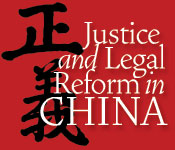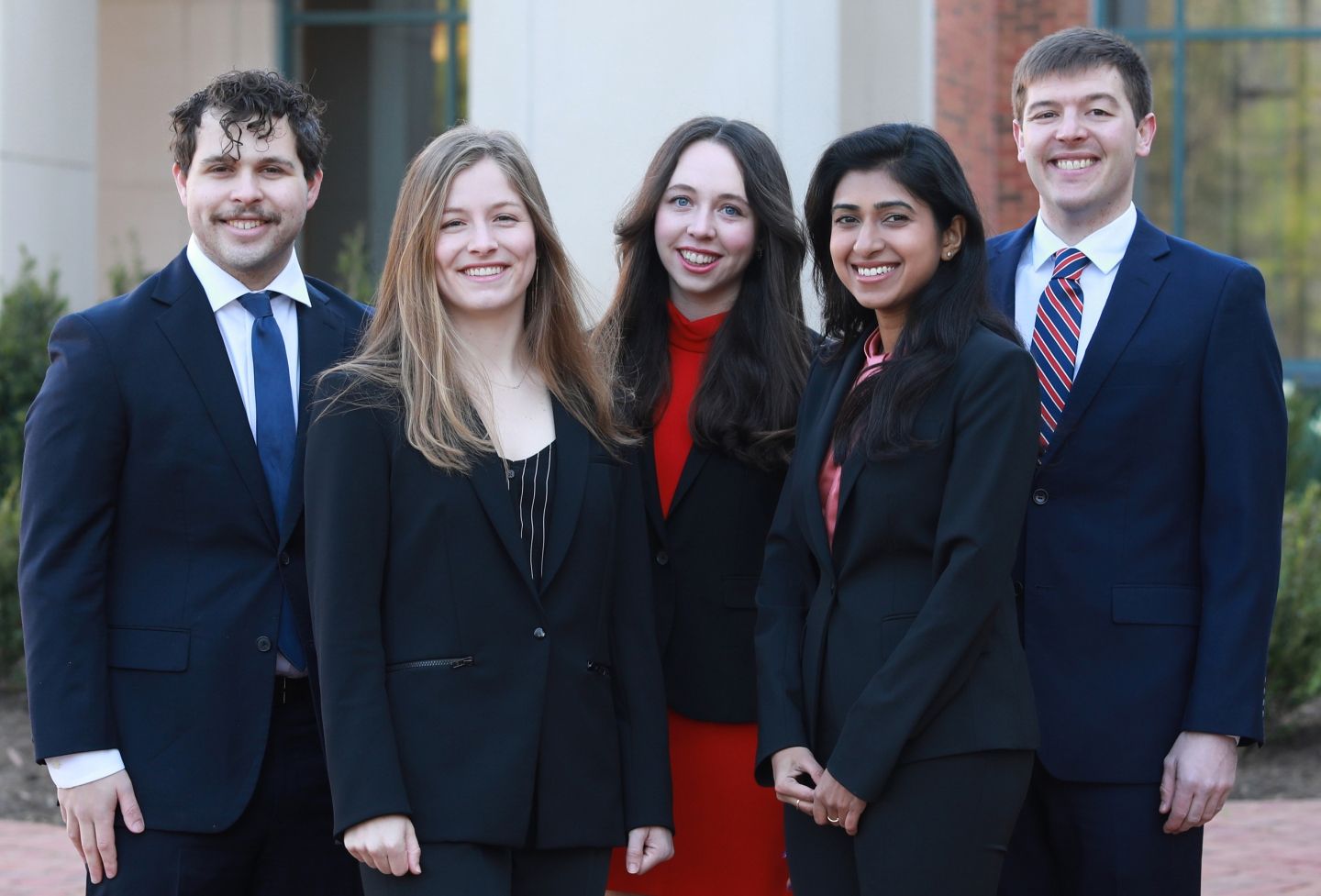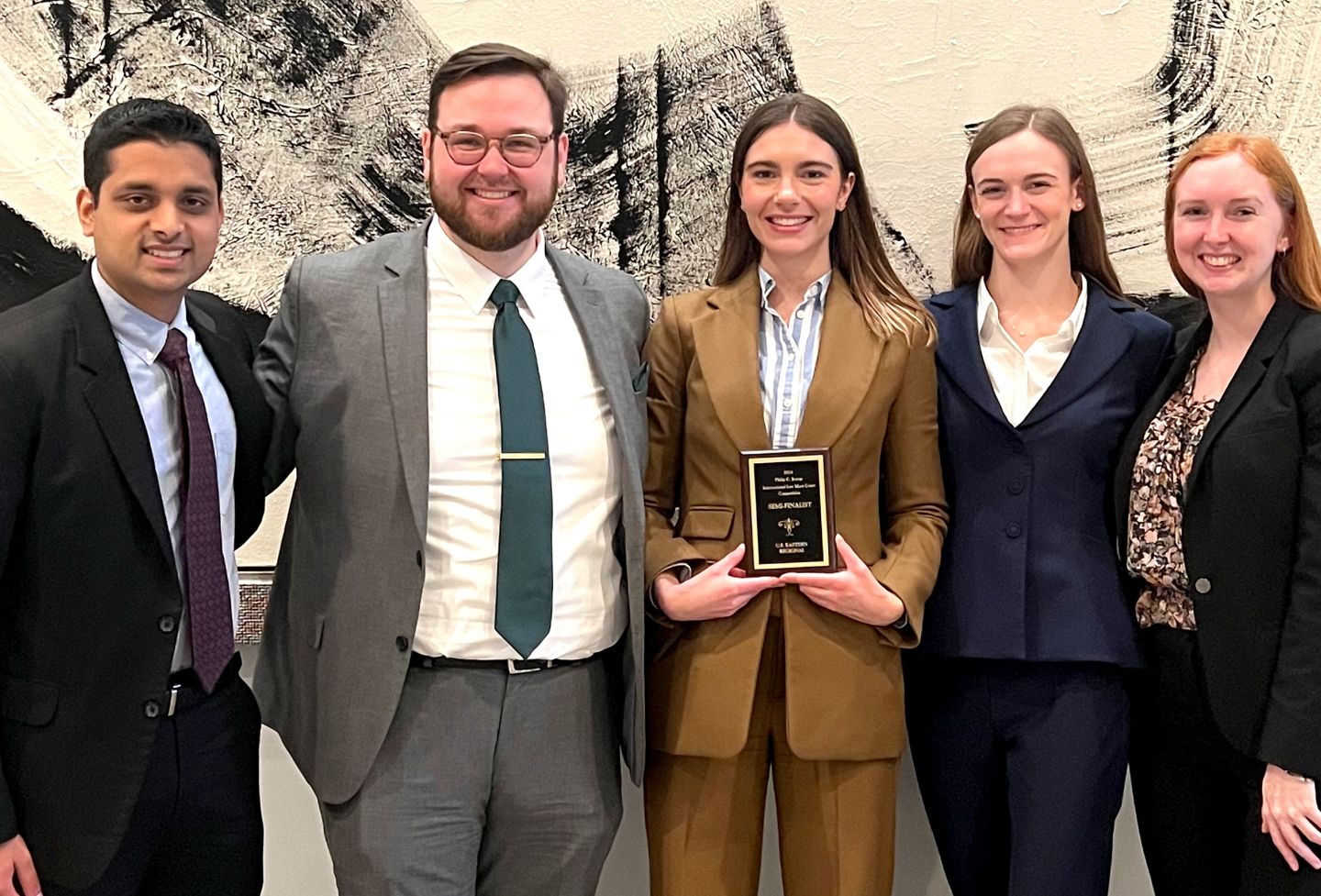Human Rights Program Conference to Explore Chinese Legal Reform
Posted March 19, 2008
A group of experts and scholars will examine the changing legal landscape in China in light of the country's rapid growth during a conference at the University of Virginia School of Law on Thursday, March 27.
Sponsored by the Law School's Human Rights Program, “Justice and Legal Reform in China” will feature panels on Chinese legal reform, Internet access and regulation, environmental advocacy, and China's role as a world leader. An open session of the Human Rights Advocacy Seminar will feature a pre-conference panel, “Defending Rights in China: The Weiquan Movement,” on Wednesday, March 26 at 5:15 pm.
"China has invited international scrutiny by hosting the 2008 Olympics, and seemingly embraces its growing prominence on the world stage," said conference organizer Deena Hurwitz, director of the Law School's Human Rights Program. "But alongside reports of exceptional development are stories that document the corresponding costs and concerns of the country's rapid growth."
The conference is free of charge and open to the public. RSVP to@email by Tuesday, March 25 to join the luncheon or to receive a parking pass; spaces are limited.
|
WEDNESDAY, MARCH 26 Location: Room WB102 |
|
| 5:15–6:45 p.m. |
Defending Rights in China: The Weiquan Movement "Weiquan"can be translated as "rights defense," or the action of lawfully defending one's legal rights. Rights defense groups have been active for a several decades in China, but the term "weiquan" has come into wide circulation only recently. The Chinese government's reaction to this trend has ranged from expressions of concern for the rural poor and calls for a harmonious society based on the principles of weiquan, to increasingly severe crackdowns on weiquanactivists. MODERATOR PANELISTS Luo Xiaopeng, professor, Chinese Academy for Rural Development, Zhejiang University Yao Yao, director, Civil Society Watch, Law & Public Participation Project, Fellow, Public Interest Law Initiative, Columbia Law School |
|
THURSDAY, MARCH 27 Location: Purcell Reading Room (except where noted otherwise) |
|
|
9 am |
Welcome Deena Hurwitz, director, Human Rights Program; associate professor, General Faculty; director, International Human Rights Law Clinic, University of Virginia School of Law |
| 9:15–10:45 am |
Chinese Legal Reform: Potential for Change in Public Interest Law MODERATOR Chen Yueqin, director and lawyer in public interest, Chen Yueqin Law Firm, Beijing Robin Maher, director, American Bar Association Death Penalty Representation Project |
| 10:45–11 am |
Break |
| 11 am–12:30 pm |
The Internet in China: Digital Barriers or Digital Gateways? As technology improves Chinese citizens' ability to access and transmit information and ideas globally, the Chinese government faces a turning point: Will it allow the Internet to increase individual autonomy and intellectual freedom, or will it attempt to tighten its control of communication gateways? Internet access is spreading throughout China but, critics say, so are the government's practices of blocking foreign Web sites and filtering online content. This panel will examine the current status of Internet access and regulation in China, and possible directions for future policy. MODERATOR PANELISTS Zhao Jing (Michael Anti), Niemann Fellow for Journalism, Harvard University Molly Beutz, associate professor of law, New York Law School |
| 12:30–2 pm |
Luncheon with Panelists and Film Showing |
| 1:15-2 pm |
Film: "The People's Court: China's Legal Revolution" (2007) WIDE ANGLE (a production of WNET/Thirteen, part of a series of international, current affairs documentaries) gained exclusive access to film in Chinese courts — a first for a Western documentary. Profiling itinerant judges, law students, a human rights lawyer, and ordinary citizens, "The People's Court" examines China in flux, revealing the lengths to which Chinese people must go to obtain justice and raising crucial questions about their emerging system of law. |
| 2:15–4 pm |
The Impact of Environmental Justice Advocacy in China China's rapid industrial development has increased pollution and degradation of the country's natural resources. The Chinese environmental crisis has significantly affected China's population, with air and water pollution causing an estimated 760,000 deaths each year. The Chinese government recently claimed it will greatly expand environmental legislation and enforcement in order to reduce pollutant levels. At the same time, it continues to pursue environmentally suspect policies, such as the building of the Three Gorges Dam on the Yangtze River. This panel will examine the Chinese government's response to the environmental crisis, as well as possible solutions. MODERATOR PANELISTS Liu Jianqiang, senior investigative journalist, China Southern Weekend, 2005 winner of the Dupont Prize for environmental journalism Anna Brettell, program officer-East Asia, National Endowment for Democracy; Patricia Adams, executive director, Probe International (Toronto) |
| 4–5:30 pm |
"The Peaceful Rise": China's Role on the World Stage MODERATOR PANELISTS Chin-Hao Huang, senior research associate, Stockholm International Peace Research Institute Yong Deng,professor in political science, United States Naval Academy; co-editor, "China Rising: Power and Motivation in Chinese Foreign Policy" (2005) |
| 5:30–5:45 pm |
Closing Remarks |
| 5:45–6:30 pm | Reception |
Founded in 1819, the University of Virginia School of Law is the second-oldest continuously operating law school in the nation. Consistently ranked among the top law schools, Virginia is a world-renowned training ground for distinguished lawyers and public servants, instilling in them a commitment to leadership, integrity and community service.
 Schedule
Schedule

